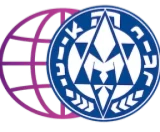By: Maor Hurevich, Shaliach of Hanoar Hatzioni for Netzach Israel Movement in Brazil
One of the most exciting moments for a youth movement is going to the movement’s
machane. Long before the beginning of the machane, the hanhaga gathers to schedule the
specific date, Vaadat HaChinuch carefully builds the educational program and the madrichim
meticulously plan the peulot and buy the necessary equipment and games for the different
activities. And what about the chanichim? There is no one as excited, thrilled and maybe a
little scared as the chanichim. Enthusiastic youngsters and teenagers arrive at the buses with
huge luggage whose zippers surrender, at the last moment, to the pile of candy that was
squeezed into it while applying a considerable amount of pressure, finally agreeing to close.
After saying goodbye to their parents, they get on the buses and wait for the sound of the
engine. The departure and the waving of hands to the parents symbolize the opening shot of
the real thing – the machane begins!
The tnua’s machane is the culminating moment of the semester. All of our hassle and efforts,
working relentlessly to prepare the peulot and games for the ken, the crying and laughter, the
anger and joy, the good and the difficult moments, all come down to these four or five days.
During the machane, we essentially break out of our daily routine, from our familiar home
and the delicious food and go to a foreign and unknown place, a place where someone we do
not know cooks food that is not as good as our mother’s, where the bed is not as comfortable
as the one in our home. In this place, cleanliness, order and homey, pleasant scents are
replaced with stinky odors and messy rooms, and who knows whether there will be hot water
in the shower this time.
Every person who has ever been a part of a youth movement is probably familiar with these
descriptions. But have we ever imagined how these descriptions of the tnua’s machane relate
to the holiday of Sukkot?
Sukkot is one of the Three Pilgrimage Festivals mentioned in the Bible, in which every Jew
was commanded to go to the Temple of Jerusalem, offer an animal sacrifice and give thanks
for the harvest that was gathered during the year. Therefore, Sukkot is also known as the
Festival of Ingathering (Chag Ha’asif), since at the end of summer, the farmer reaps the fruits
of his/her labor. This is, in fact, a reward for all his/her hassle during the year. Imagine this
peak moment: An entire people, families and individuals, leave their homes and fields, their
hoes and pitchforks, break away from their daily routines and everything they know and
travel to somewhere else, to Jerusalem, away from their homes. Sukkot marks the end of the
agricultural season after the long summer and the preparation for the rainy season. Therefore,
it is a peak moment in the Hebrew calendar.
In Sukkot, we are commanded to leave our homes and sit in the Sukkah, commemorating the
Israelites’ period of wandering in the wilderness. What stands behind the peculiar
commandment? Leaving our cozy and familiar home and our comfortable bedroom to go to a
temporary, cramped and utterly unnatural dwelling is one of this holiday’s main ideas.
Our routine and day-to-day lives often cause us to feel indifferent and complacent. Our days
and weeks are very fixed and have a regular and dictated schedule.
Along with the convenience that our daily routine provides, it may also cause us to be
dragged or sucked into it: We might forget to pause for a moment and appreciate our
everyday surroundings. The holiday of Sukkot shakes our entire leisurely existence; the most
fundamental aspects of our lives. We leave our safe home for a temporary dwelling. From a
warm house and a comfortable bed, we leave for an unnatural and unstable place for a whole
week.
When we return to our familiar place after a few days out of the house, we learn to appreciate
it genuinely. When we return home, there is a sense of closure. We understand how valuable
our daily routine is. Suddenly, our belongings and surroundings become more valued. When
we learn to truly appreciate our surroundings and belongings instead of taking them for
granted, we become free. The tnua’s machane as well as the holiday of Sukkot allow us to
break away from all the objects and devices that surround us, to detach from everything that
chains us and to become free people.
And why do we love it so much? Suddenly, when we say goodbye to our parents and the
buses get on their way, we traverse to a different reality, a reality that is disconnected from
this world. Suddenly, for a few days, we get an opportunity to be and live in a disconnected
world and to dream.
Similar to the Festival of Ingathering, when the entire people would leave their homes and
fields and go to the Temple of Jerusalem to give thanks for the fruit of their labor, we go to
the machane to enjoy all the hard work we invested during the semester and rejoice over the
fruits of our hard labor in the tnua.
I wish you all a happy Sukkot.










